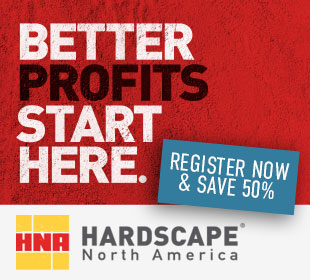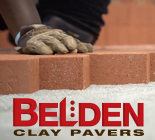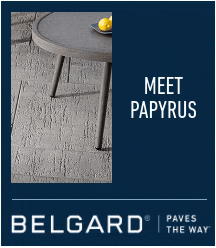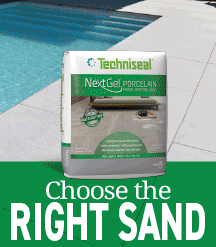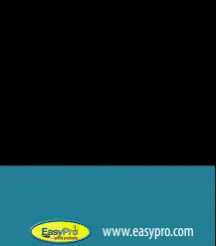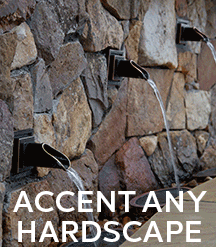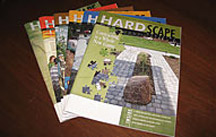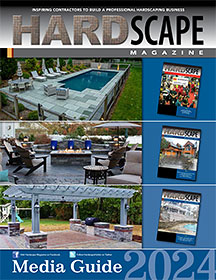Articles written by guest contributors
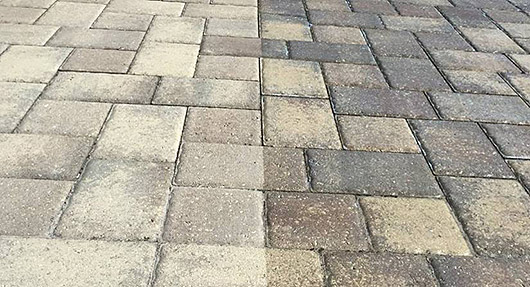
Why seal pavers – a growth business
By David Warren, President, Black Diamond Coatings, Inc.Before becoming a sealer manufacturer, I was a sealing contractor for 10 years, sealing over 4 million sf of hardscape surfaces and earning an excellent reputation. I can tell you from personal experience: There is money to made cleaning and sealing pavers.
If you aren’t already in the sealing service business, we encourage you to consider it as a solid revenue stream – both in the initial application, and then through ongoing cleaning and sealing maintenance. In the last 10 years, over 5.95 billion sf of concrete pavers have been sold in the U.S. and Canada according to ICPI’s research. In the last 5 years alone, paver sales have grown by 28%.
The sheer volume of pavers installed is fueling the need for maintenance of property owners’ investments, and a growing demand for sealing contractors.

David Warren
To seal or not to seal
Once most property owners have made the investment in a beautiful paver hardscape, they’ll want to maintain it.“When asked by a homeowner whether or not to seal their patio pavers, my stock answer is ‘I would,’” says Alan Starling, CDC Central Region Sales Manager of Pavestone Company. “I love to entertain outside, grilling on my patio. And, sealers help reduce stains and keep things looking great. Same for the driveway; no one likes to see motor oil drips on their pavers. It’s much easier to clean than trying to replace stained pavers.”
When pavers are sealed, the sealer fills the pores of the pavers so dirt and stain causing substances cannot penetrate the pavers. Once sealed, a surface still needs to have any spills or substances cleaned off the surface within a reasonable period of time or it could stain the sealer. One of the biggest benefits of using a sealer is that it makes the surface easy to hose off, usually without the need for a pressure washer.
“We recommend using a commercial grade, high quality sealer on all new and existing paver surfaces to provide color enhancement and protect the surface from many types of stains such as oil, fertilizer and tree sap or leaves,” explains Russell Young, General Manager of Flagstone Pavers. “Customers typically install concrete pavers to complement and highlight an outdoor remodeling project, so sealing keeps the project looking as good as the day it is installed.”
Sealers have come a long way
Paver sealing is still a relatively new concept, yet it has had a short history of challenges. Early sealers were unforgiving. They required near perfect application and conditions to get good results. Then easier-to-apply sealers were introduced, but many of these products didn’t live up to expectations.Today’s sealers are exponentially better. They’re much easier to apply and achieve great results if you take time to educate yourself. Plus, today there are a number of educational resources available to help you.
Most sealer manufacturers offer training programs on the proper use and applications of their products. These courses offer peace of mind that your team has the knowledge to make sealer application a valuable part of your business.
The sealing business
Cleaning and sealing pavers and other hardscapes is a perpetual business. It will need to be performed again, no matter what sealer is used. For installers who typically have a 1-time sale with a homeowner, offering a cleaning and sealing service provides an ongoing revenue stream, adding value and steady income. For contractors who are already providing services to customers with existing pavers, cleaning and sealing becomes another valuable service to provide.Contractor Bart Citro of Weeki Wachee Stone Yard in Weeki Wachee, FL has operated a successful hardscape installation business since 2003, sealing all of their installations. He says sealing projects set them apart while increasing sales and profits.
“Anyone can start a business and say they offer this or any other service at a reduced price. However, we have built our business on the belief that it’s the true professional who continues to work on their craft, without cutting cost or corners, who will deliver a stunning product to the customer and realize success.”
How often do pavers need cleaning?
All hardscape surfaces need to be pressure washed on a periodic basis. Many contractors offer cleaning maintenance on a quarterly, bi-annual or annual basis. During this cleaning, you can check to see if any sealer touch-ups are required.Then when it’s time for a full re-sealing application, your company should be guaranteed the business because of your continuing relationship with the property owner and the value you’ve been providing.
How often do pavers need to be resealed?
The lifespan of a sealer will vary based on a number of factors, but is generally 2 to 3 years. Some factors that impact the life of the sealer include:
- Sealer type – High quality, commercial grade sealers will generally last longer.
- Proper application – Thorough surface preparation and application of the sealer has a large impact on the durability of the sealer.
- Climate – An increased exposure to water or sun can decrease the lifespan of the sealer.
- Traffic – Excessive traffic can decrease the lifespan of the sealer.
- Maintenance – Proper maintenance of the area can increase the lifespan of the sealer.
Skills of good sealing technicians
If you’re thinking that sealing services might be a good addition to your business, you then need to consider whether your existing staff has the aptitude to perform the services. In our experience, the following staff qualities are critical to sealing service contractors that have excellent reputations: Attention to detail
Preparation is as important as the sealing itself. The hardscape must be completely clean, efflorescence/stains removed and the surface well rinsed. If pavers need to be re-sanded, ensure the proper sand level is achieved and sand is not on the hardscape surface. Test the surface with the selected sealer to ensure it works as expected, because every surface is different. Ensure that only the surfaces intended to be sealed are in fact sealed. Finally, ensure that cleanup is performed well. Appreciate the art
While cleaning pavers may be a bit more scientific, sealing is much more of an art. Sealing technicians must learn to apply appropriate amounts of sealer depending on the surface conditions. Previously sealed pavers need a different amount of sealer than “virgin” pavers. Hardscapes also have different porosities, requiring different amounts of sealer to properly seal the surface. For example, natural stone and pool copings are denser surfaces requiring different sealers and/or different amounts of sealer than concrete pavers. Desire for referrals
Technicians should have a desire to do their best work every day, developing smooth, even sealing techniques regardless of the sealer product used. They also work with their customers to choose the appropriate sealers/finishes for the job and explain what their customers need to do to maintain their surfaces. Choosing the appropriate sealers to offer
Knowledge is power. Do your research on the features, benefits and limitations of several products. Are there any considerations that would make you want to choose or avoid a product based on your weather conditions, property owner preferences, hardscape surface needs and/or product value? Does the sealer manufacturer offer training to help you properly apply products?Despite the training opportunities out there, many hardscape installers still do not offer sealing as part of their services for a variety of reasons. Some have had bad experiences in the past. Others are unfamiliar with the process. With the growing demand for quality sealer contractors today, it’s a great time to add a new hardscape maintenance profit center to your company.
David Warren is President of Black Diamond Coatings, Inc., a national producer of biobased, environmentally-friendly, low VOC sealers for concrete, pavers, stone and wood. Prior to founding Black Diamond Coatings, David built a successful paver restoration company in Tampa, FL. Black Diamond Coatings is 1 of only 5 sealer companies to be USDA certified as biobased (primarily plant-based) rather than petroleum based. Call (800) 270-4050 or visit BlackDiamondCoatings.com.



